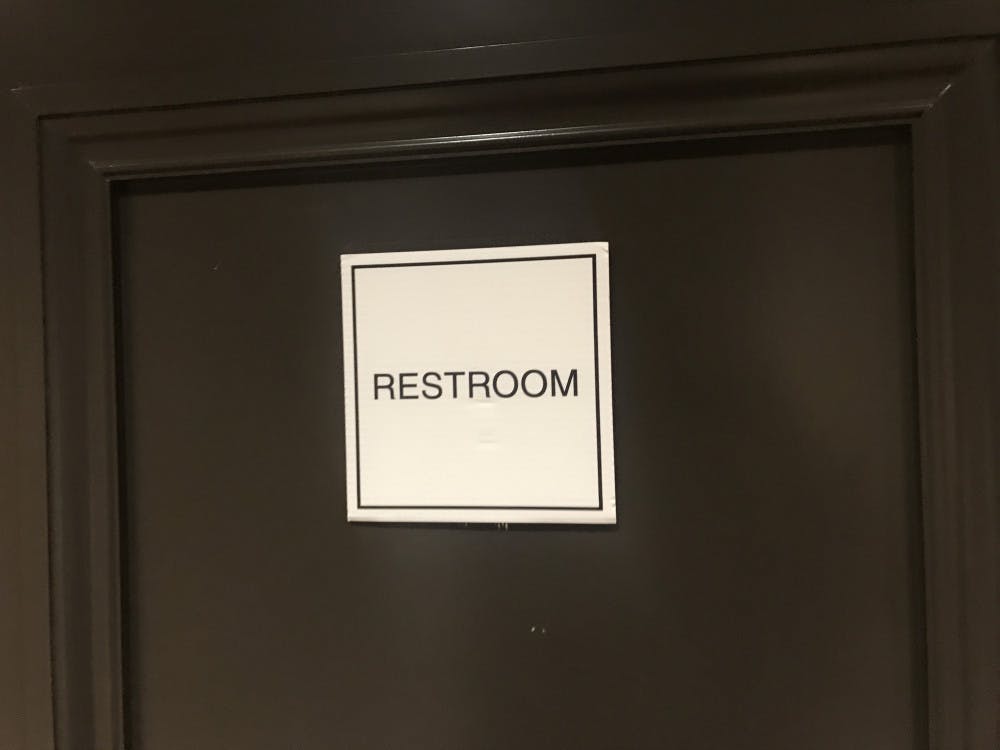In support of efforts to ensure every non-residential campus building has gender inclusive restrooms, the University launched a new mobile application called BrownU that maps each of their locations.
BrownU, which was rolled out August 15 by the Computing & Information Services Department, is available for iOS and Android devices. It also includes access to dining hall menus, shuttle routes and gym hours, among other tools. The app emerged after Assistant Director of IT Communications and Training Stephanie Obodda spent a little under a year working with a focus group of 80 students. She wanted to discern “what is most helpful for students as they’re walking across the green with phone in hand.”
“Certainly finding a restroom is one of those experiences,” Obodda said. But after spending months reviewing peer college apps, Obodda did not see any that featured a map of gender inclusive restrooms.
The campus currently has about 200 nonresidential gender inclusive restrooms and five in progress, according to the LGBTQ Center website. Knowledge about these restrooms’ locations can improve accessibility and inclusion for trans and gender diverse populations, according to Jayden Thai, a licensed psychologist in University Counseling and Psychological Services and leader of a gender diversity support group.
The need for these apps became more clear during the “bathroom bills” debate, in which several states attempted to limit restroom usage based on sex assigned at birth, Thai wrote in an email to The Herald.
The app “takes the guessing out of the equation and allows folks to more immediately know their nearest safe space, as far as bathrooms go,” Thai added. Especially for students in class, the app prevents them from having to go back to their dorms.
Director of the LGBTQ Center Kelly Garrett reaffirmed the need for this feature of the BrownU app. Garrett said the center was also looking to create an online interactive bathroom map, but CIS had already begun the project before Garrett spoke with the department.
“They’ve done a really good job supporting our initiatives,” Garrett said. “I think students were happy about it.”
CIS is now working on an updated version of the app that would utilize students’ mobile location services to help them locate the nearest inclusive restroom. Obodda said she will continue to look for ways the app can make inclusivity as effortless as possible.
“What could be more inclusive than inclusive restrooms?” Obodda said. “It’s a basic need.”





